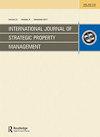COVID-19大流行和办公空间需求动态
IF 2
4区 管理学
Q3 MANAGEMENT
International Journal of Strategic Property Management
Pub Date : 2023-03-07
DOI:10.3846/ijspm.2023.18003
引用次数: 1
摘要
2019冠状病毒病大流行导致远程办公和其他办公市场动态的大规模采用。随着企业继续通过各种工作模式适应疫情带来的变化,对办公市场的潜在影响尚不清楚。本文使用莱坊(Y)OUR SPACE(2021)调查的数据,采用probit和多项模型来研究与COVID-19相关的远程工作与公司办公空间策略变化之间的关系。该研究证实,疫情对公司的中期办公空间使用策略产生了重大影响,结果表明,公司对员工在家工作经历的看法影响了他们的战略审查。研究结果特别表明,积极的WFH体验增加了企业减少总空间数量、降低占用密度并在中期谈判缩短租赁期限的可能性。我们还注意到,疫情对空间质量的影响可能弱于对空间数量的影响,这意味着经济因素仍然是未来办公空间使用战略的核心优先事项,而社会和环境因素可能仍然是次要因素。这些见解将文献从办公空间需求的经济决定因素扩展到其他社会因素。本文章由计算机程序翻译,如有差异,请以英文原文为准。
THE COVID-19 PANDEMIC AND OFFICE SPACE DEMAND DYNAMICS
The COVID-19 pandemic led to the mass adoption of remote working and other office market dynamics. As firms continue to adapt to the changes caused by the pandemic through various work patterns, the potential implications for the office market are unclear. Using data from Knight Frank’s (Y)OUR SPACE (2021) survey, this paper employs probit and multinomial models to examine the relationship between COVID-19 related remote working and changes to firms’ office space strategies. The study confirms that the pandemic has significantly influenced firms’ medium-term office space use strategies, and the results show that firms’ perception of their employees’ work-from-home experience has influenced their strategy review. The results specifically show that a positive WFH experience increases the likelihood that firms will reduce their total space quantity, reduce their density of occupation, and negotiate shorter leases in the medium term. We further observe that the pandemic is likely to have weaker effects on space quality than on space quantity, implying that economic factors remain core priorities in future office space use strategies, while social and environmental factors may remain secondary. These insights extend the literature beyond the economic determinants of office space demand to other social factors.
求助全文
通过发布文献求助,成功后即可免费获取论文全文。
去求助
来源期刊
CiteScore
4.00
自引率
18.50%
发文量
23
审稿时长
15 weeks
期刊介绍:
International Journal of Strategic Property Management is a peer-reviewed, interdisciplinary journal which publishes original research papers. The journal provides a forum for discussion and debate relating to all areas of strategic property management. Topics include, but are not limited to, the following: asset management, facilities management, property policy, budgeting and financial controls, enhancing residential property value, marketing and leasing, risk management, real estate valuation and investment, innovations in residential management, housing finance, sustainability and housing development, applications, etc.

 求助内容:
求助内容: 应助结果提醒方式:
应助结果提醒方式:


